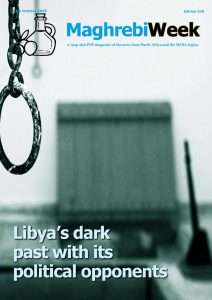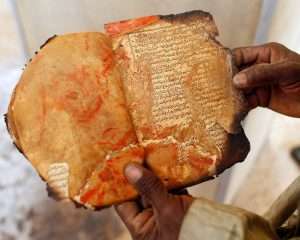UK: Debate grows after Israeli fans banned from football match

AMSTERDAM - Supporters van Maccabi Tel Aviv met Israelische vlaggen op De Dam. In aanloop naar de wedstrijd Ajax - Maccabi Tel Aviv zijn een aantal delen van Amsterdam aangewezen als veiligheidsrisicogebied. ANP JEROEN JUMELET
The UK government has intervened after Birmingham authorities decided to ban Maccabi Tel Aviv supporters from attending their club’s Europa League match against Aston Villa, reported by BBC News on the 17th of October.
Aston Villa announced on the 16th of October that the city’s Safety Advisory Group, supported by West Midlands Police, had advised that away fans be barred due to security concerns. This decision has sparked a national debate over discrimination and the intersection of sport and politics amid growing international condemnation of Israel’s genocide in Gaza.
Police referenced “violent clashes and hate crime offences” before a Europa League match in Amsterdam in November 2024, where more than 60 arrests were made as their reasoning for the ban.
The trouble reportedly began to brew the day before the match in Amsterdam, when Maccabi Tel Aviv fans attacked a taxi drivers and burned a Palestinian flag, actions that local officials said instigated a “toxic combination of antisemitism, hooliganism, and anger” surrounding the event. After the football match that finished 5-0 to Ajax, it was reported that the Israeli football fans took part in racist chants such as “death to Arabs” and “why is school out in Gaza? There are no children left there” and were involved in violent clashes.
Culture Minister Ian Murray called the decision by Birmingham authorities “completely and utterly unacceptable,” and said Culture Secretary Lisa Nandy would meet with Home Office officials and local partners to review it. Labour leader Keir Starmer also opposed the restriction, describing it as “the wrong decision” and insisting that “we will not tolerate antisemitism on our streets.” Conservative leader Kemi Badenoch branded the move a “national disgrace,” claiming it implied “there are parts of Britain where Jews simply cannot go.”
The controversy comes amid growing tension over how antisemitism and criticism of Israel and Israeli actors are discussed in the UK. Earlier in October, Green Party deputy leader Zack Polanski, following the deadly attack of a synagogue in Manchester, warned that the government was “weaponizing” antisemitic violence to silence opposition to the state of Israel. He argued that grief and outrage over attacks on Jewish communities must not be used to suppress legitimate protest or critique of Israeli state actors.
Birmingham City Council defended its decision as a necessary safety precaution, citing police intelligence and logistical concerns. Independent MP Ayoub Khan, who campaigned on a pro-Gaza basis, supported the restriction, saying the risks were too great. But figures from the Jewish community and football supporters’ groups condemned the move as discriminatory and politically charged. Andrew Fox of Aston Villa’s Jewish supporters’ club called it “shameful,” while Maccabi Tel Aviv’s chief executive Jack Angelides said the decision had caused “dismay about what this is potentially signaling.”

The Union of European Football Associations (UEFA) has reaffirmed that fans should be able to travel in a “safe, secure and welcoming environment,” but noted that local authorities have final responsibility for security decisions.
This decision by Birmingham authorities brings broader questions into focus, such as Israel’s participation in international sporting events and whether they should be allowed to compete. The majority of UEFA, which has 55 members, favour the suspension of Israel from all European competitions, which would maintain consistency with UEFA and FIFA’s decision to ban Russia’s national and club teams following its invasion of Ukraine in 2022.
BBC News, The Independent, The Times of Israel, Maghrebi
Want to chase the pulse of North Africa?
Subscribe to receive our FREE weekly PDF magazine










